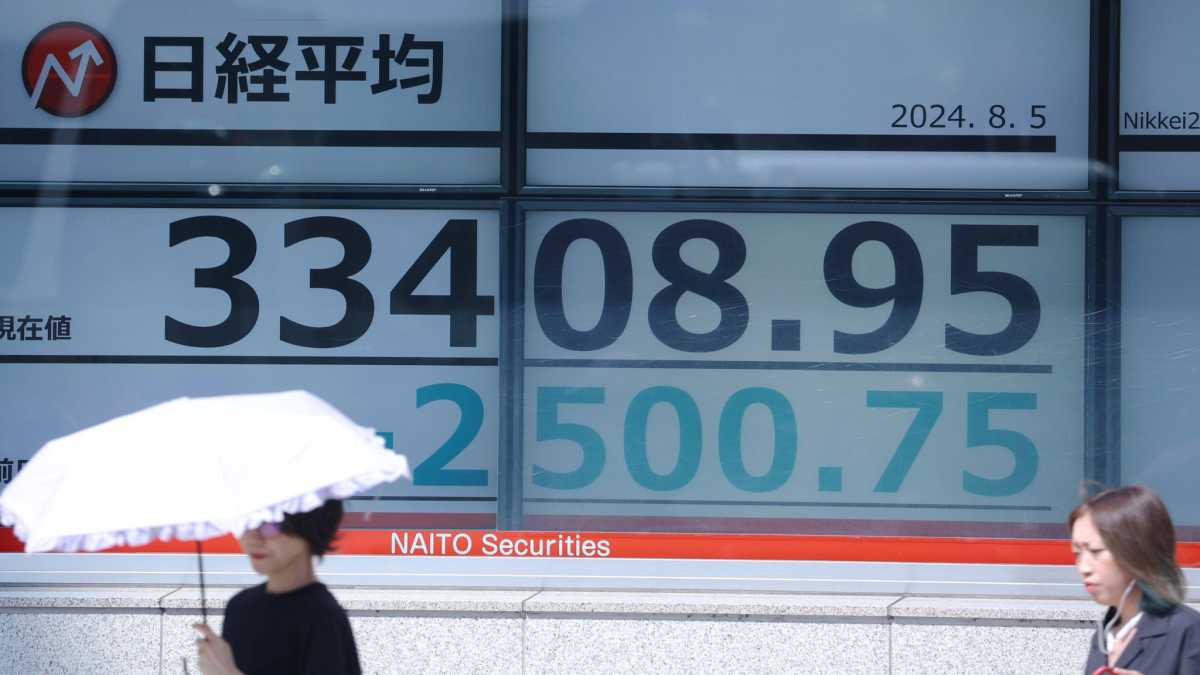News
FTSE 100 Takes a Dive Amid US Recession Fears

London‘s FTSE 100 has dropped to its lowest level since April, as fears of a recession in the US continue to rattle investors globally.
The blue-chip index fell by three percent, closing at 7,926.57 on Monday afternoon. Meanwhile, the FTSE 250, which closely mirrors the health of the UK economy, took an even bigger hit, plunging 4.1 percent to 19,979.17.
With only three out of the FTSE 100 companies showing positive gains, the sell-off was particularly harsh on UK banks like Barclays, Natwest, and Lloyds, which saw their shares decline by as much as 5.2 percent, 4.8 percent, and 4.4 percent, respectively.
Over in Europe, markets weren’t faring any better. France‘s CAC 40 dropped 2.8 percent, while Germany‘s Dax fell by 3.5 percent. The Stoxx 600 benchmark also took a hit, dropping 3.6 percent to its lowest point since January.
Investor uncertainty was heightened after last Friday’s US job growth figures fell short of expectations, raising fears of a recession in the world’s largest economy.
US non-farm payrolls only rose by 114,000 in July, which was significantly below the anticipated 175,000. Additionally, the unemployment rate hit a three-year high of 4.3 percent, exceeding the expected 4.1 percent.
As a result, US futures slipped on Monday, with the tech-heavy Nasdaq 100 predicted to open nearly 1,000 points lower at one stage.
Amid these fears, traders are now anticipating a possible 200 basis point cut in interest rates over the next year, as the US Federal Reserve may need to act swiftly to prevent an economic downturn.
Derren Nathan, head of equity research at Hargreaves Lansdown, commented that “the US sneeze risks becoming a cold,” hinting at larger repercussions for the global market.
He added, “Exporters bore the brunt of the sell-off,” as concerns about recessionary impacts resurfaced following disappointing employment and manufacturing data from the US.
Investors were also disappointed by the lackluster financial results from major US tech companies such as Intel and Amazon, whose shares plummeted by 26 percent and nine percent respectively last Friday.
<pIn Asia, Japan’s Nikkei 225 saw one of its biggest intraday drops in recent history, slumping by as much as 12.5 percent in a single day, effectively wiping out all gains made this year.
South Korea’s index also took a hit, dropping as much as 8.1 percent, which triggered trading curbs for the first time since 2020.
Chris Beauchamp, chief market analyst at IG, remarked on the panic selling, saying, “This is a perfect demonstration of what happens when everyone tries to sell at once.”
Looking ahead, the world is now bracing for potential actions from Iran following the assassination of Hamas leader Ismail Haniyeh in Tehran last week, which could further shake global markets.
In a note, Joachim Klement from Panmure Liberum suggested that while US stocks may remain shaky for a while, it might be a good time to invest in UK and European stocks, especially those benefiting from the policies of the new Labour government.












